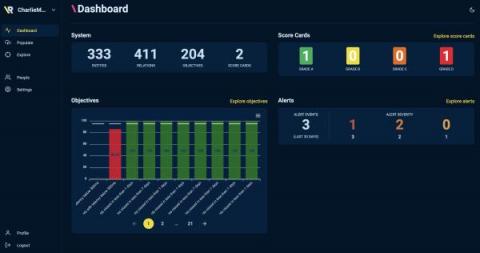Operations | Monitoring | ITSM | DevOps | Cloud
Reliably
Are Code Freezes Still Needed?
A code freeze means no code can be altered or modified during the frozen time, and developers will not make any additional changes. Developers can only modify the code in the event of critical flaws and to the extent required to correct those vital problems. Primarily developers observe a code freeze during the final phase of software development when the software product has reached the delivery state.
What is reliability engineering?
Reliability engineering focuses on the ability of systems to perform as it is intended to and function without failure in a specified environment, for the required time duration. Reliability engineering can be applied across the entire lifecycle of software development. It is designed to increase the dependability of a product by detecting potential reliability issues early in the software development cycle, and correcting causes of failure that do occur.
10 Ways You Can Improve Service Reliability
Software reliability can be defined as the probability of a failure-free operation of a computer system over a specified period, under a set of specific conditions. It is an important factor in determining software quality. Site reliability engineering (SRE) is a software approach to IT operations that helps organizations to improve the reliability of their systems.
7 Key SRE Principles For Better Reliability
Since Google coined the term, the role of an SRE has evolved as the industry has shifted toward large-scale distributed microservices. An SRE’s job is to determine how to make systems more reliable and resilient.
True Cost Unplanned Application Downtime
It can be a big can of worms, but tackling IT downtime can be the first step to major cost savings. Here’s everything you need to know about downtime but were too afraid to ask.
Achieving Five Nines With Reliability
Is 99.999% uptime realistic? We cover why you should care, and how you can achieve it.
Top 10 Reasons For A Site Reliability Platform
A system’s reliability is one of the most important things that engineers should care about. They ensure customers are kept happy and keep organizations profitable. Investing in reliable processes and tools to ensure systems are reliable can be critical to company success. Site Reliability platforms are popular choice when it comes to monitoring and observing software services as they help make responding to and solving application problems easier.
How To Minimise Alert Fatigue In SRE
Alert fatigue occurs when people become desensitized to the overwhelming number of alerts they receive and are expected to respond to. Even though these alerts are typically easy to respond to, it is the sheer number of them that ultimately causes people to feel fatigued. The higher the number of alerts, the more likely it is that employees are likely to begin to ignore and potentially miss an important alert leading to bigger consequences.
Improving Team Health With Reliably
Improving team health within DevOps is vital for success in any engineering team. In this article, we’ll look at some of the ways that you can improve team health with Reliably so you can keep your developers happier, healthier and free from burnout.











